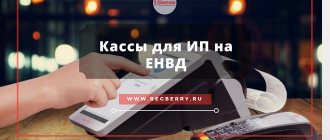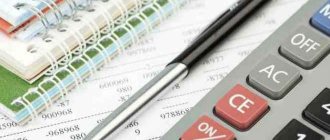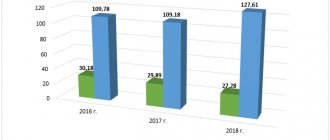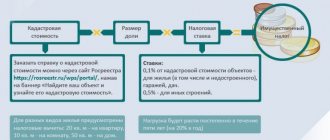On November 15, 2021, the law on self-employed people was approved by the State Duma. Officials guaranteed that the conditions of the law would not worsen for 10 years. “No changes can be made that worsen the payer’s situation, either in terms of the rate or the level of income,” said Chairman of the Committee on Budget and Taxes Andrei Makarov, co-author of the law on the self-employed.
After many months of discussions and amendments, officials proposed the following conditions for legalization.
The tax rate for self-employed people will be:
- For self-employed people providing services or selling goods to individuals, the tax rate will be 4%.
- For self-employed people providing services to legal entities or individual entrepreneurs, it will be 6%.
The new tax regime will be available to those who have an income of no more than 2.4 million rubles. per year, do not have an employer and do not hire employees under employment contracts.
Who are self-employed
Self-employed are persons who do not have an employer or employees, that is, they are citizens who receive income from their personal work activities. The list of citizens who fall into the category of self-employed is quite large, for example, they include:
- Freelancers providing services through electronic platforms,
- Providing cosmetic, hairdressing and other services at home,
- Photo and video shooting, holding events and celebrations,
- Selling products of our own production,
- Construction and repair work,
- Real estate services and landlords,
- Tutoring, organization of excursions, passenger transportation services, general laborers, etc.
So, if you provide services to individuals or companies, with the help of the new tax regime you will be able to legally receive money from them for your services.
Previously, banks had the right to block your cards and accounts if you received large amounts of funds that you could not justify. At the same time, for conducting business activities without registration, you could easily receive a fine from the state.
On the other hand, companies that worked with individuals were required to act as tax agents and pay 13% personal income tax for them, otherwise they could also “run into” a fine. The state sought to restore order in this area, since it was not receiving enough taxes due to the fact that most of the citizens providing such services were “in the shadows.”
Now, with the introduction of the tax on professional income, the process of interaction between individuals, companies, banks and the state has become simpler and more transparent. This is its undoubted advantage; we’ll talk about other advantages later.
Participation in procurement at the small business level
There are two laws that actually equalize the rights of the self-employed with small businesses regarding procurement:
- Federal Law No. 474-FZ dated December 27, 2019 (purchases under 223-FZ).
- Federal Law No. 169-FZ dated 06/08/2020 (purchases under 44-FZ).
Previously, self-employed people could also participate in government procurement, but only on a general basis. While small and medium-sized businesses legally enjoyed preferences.
These preferences relate to the mandatory volume of purchases, a reduced payment period for supplies, and other details.
Tax rates for the self-employed, which taxes replace
Tax rates on professional income are fixed and calculated automatically:
- 4% - if you provide services and receive money from individuals,
- 6% - if you provide services and receive money from legal entities or individual entrepreneurs.
The self-employed tax replaces a number of other taxes and thereby helps reduce the tax burden. Thus, individuals registered as self-employed pay only the above taxes and do not pay 13% personal income tax on their professional income.
Individual entrepreneurs who have chosen the tax regime for the self-employed, in addition to non-payment of personal income tax, do not pay: fixed insurance premiums and VAT (except for the import of goods into Russia).
Moreover, for everyone registered as self-employed, the state provides a tax deduction of 10,000 rubles . While the deduction is in effect, the tax rate is reduced by 1% for income from individuals and by 2% from organizations.
Example. You provide tutoring services at home. Your monthly income will be 120 thousand rubles. Accordingly, you must pay 120,000 * 4% = 4800 rubles. tax While the tax deduction is in effect, a 3% rate will be applied, so you will pay 3,600 rubles, and the deduction amount will be less by 1,200 rubles. This procedure will be applied until the entire tax deduction amount is spent.
Accounting for tax rates, applying tax deductions, controlling income limits and other calculation features are fully automated. The taxpayer is only required to generate a receipt for each income received from activities that are subject to professional income tax.
To pay your tax you only need to take 3 steps:
- Generate a receipt for each customer in the application,
- By the 12th day of the next month you will receive information about the amount of tax to be paid,
- By the 25th of the next month, pay the tax in any convenient way.
If the amount of tax that must be paid at the end of the tax period does not reach 100 rubles, then this amount is added to the amount of tax payable at the end of the next tax period.
Thus, this tax eliminates one of the main disadvantages of individual entrepreneurs - the need to pay insurance premiums even in the absence of income, and also helps to reduce the tax burden and simplify reporting, because tax is calculated automatically.
Bad vacation
In May, the State Duma adopted in the first reading a government bill extending tax holidays until December 31, 2021 for a number of categories of self-employed citizens - nannies, caregivers, tutors, and housekeepers. A special tax proposal for them began to apply in 2021. For self-employed people who notified the Federal Tax Service about their activities, a zero rate for taxes and insurance contributions was established. At the end of the vacation period, they had to decide whether to cease their activities, become individual entrepreneurs, or pay personal income tax at a rate of 13%. According to the authorities, this approach was supposed to help self-employed citizens emerge from the shadows and, as a result, improve tax collection. However, the proposed measures turned out to be unclaimed and did not lead to radical legalization of the self-employed. According to the Federal Tax Service, as of September 1, only 2,149 people were registered with the tax authorities in this capacity. Then the authorities thought about creating a special tax regime for them.
Tax benefits for self-employed people
Next, we will dwell in detail on the benefits that this tax provides. These include:
- Favorable tax rates and provision of tax deductions - the deduction amount is 10,000 rubles. Until it is spent, the 4% rate is automatically reduced to 3%, and the 6% rate to 4%.
- Simple registration - no need to visit the Federal Tax Service, stand in queues and fill out applications - everything can be done remotely using the application.
- Automatic tax calculation - you will not need to submit a declaration, set up an online cash register, hire an accountant or calculate the tax yourself - everything happens automatically in the application, which saves you time and money.
- The possibility of combining it with work under an employment contract - in this case, your salary will not be taken into account when calculating tax, and you will be able to freely work at your main place of work, and in your free time develop your business or hobby.
- Possibility not to pay insurance premiums for individual entrepreneurs - if you are an individual entrepreneur, then in this tax regime you will be able not to pay fixed contributions for pension and health insurance.
- Legal work without the status of an individual entrepreneur or LLC - you will be able to officially enter into contracts and legally receive money for the services you provide, without the risk of receiving a fine from the state. Income can be confirmed with a certificate from the application.
- Fixed tax rates – these cannot be changed upward until 2028, allowing the self-employed to gain some stability during this time.
- Self-employed people are participants in the compulsory health insurance system and can receive free medical care .
- The sale of personal property is not subject to this tax. That is, if you want to sell a car, an old iPhone or a TV, you can do it safely, just like before.
- Additional support for the self-employed during the pandemic , which we will discuss in more detail at the end of the article.
We see that there are quite a lot of advantages of this tax regime. For individuals, it will help “come out of the shadows” and legally receive money for their services. For individual entrepreneurs, this tax will help reduce the tax burden due to the need not to pay insurance premiums. Now let's look at what limitations and disadvantages it has.
Prospects for cooperation with serious customers
Events with the pandemic have shown that more and more companies are ready to enter into contracts for certain work not only with individual entrepreneurs, but also with the self-employed.
According to a study by the freelance exchange FL.ru, the main reason why businesses cooperate with freelancers is the opportunity to attract highly qualified specialists for a short period.
Most often, companies delegate tasks such as development and programming, writing texts, and translations. In addition, business values competent experts in the field of law, finance and accounting. Accordingly, if you are an experienced specialist in some field, you can count on good customers. And good customers prefer “white” cooperation schemes.
Limitations and disadvantages of tax for self-employed people
There are several restrictions for becoming self-employed. Firstly, your annual income should not exceed 2.4 million rubles. If the annual income exceeds this value, then you will have to switch to taxes provided for by other tax regimes or register a company as required. However, there are no restrictions on the amount of monthly income.
Secondly, self-employed people are not allowed to engage in the sale of excisable goods (alcohol, tobacco products, cars, fuel, minerals, electronic nicotine delivery systems, etc.). Third, you must not have employees or an employer while conducting activities that fall under the definition of professional income.
Fourthly, under this tax regime you will not be able to work with your former employer if less than two years have passed since your dismissal. I think this was done on purpose so that employers do not transfer employees to self-employment to optimize taxation.
Finally, this tax regime is not valid in all regions of Russia. In 2021, as an experiment, this tax regime was launched for residents of Tatarstan, Moscow, as well as the Moscow and Kaluga regions.
From 2021, this tax regime can be applied in St. Petersburg, in the Volgograd, Voronezh, Leningrad, Nizhny Novgorod, Novosibirsk, Omsk, Rostov, Samara, Sakhalin, Sverdlovsk, Tyumen, Chelyabinsk regions, in the Krasnoyarsk and Perm Territories, in the Nenets Autonomous Okrug, Khanty-Mansi Autonomous Okrug, Yamalo-Nenets Autonomous Okrug, in the Republic of Bashkortostan.
Thus, for now this tax is valid in 23 regions of Russia. But from July 1, other regions will also be able to join this experiment if they wish. In accordance with Federal Law-422, it will be valid for 10 years until the end of 2030, then a decision will be made on extension or cancellation.
Speaking about the disadvantages of this tax regime, we can dwell on the following points:
- The presence of special sanctions (Article 129.13 of the Tax Code of the Russian Federation) for violation of the procedure or deadlines for transmitting data on calculations made to the tax office. So, for any fact of non-issuance of a check, the taxpayer will be automatically fined 20% of the tax amount. If the violation is repeated within 6 months, the amount of the fine will be 100% of the tax.
- Many banks set commissions for companies when making transfers to individuals, which include self-employed people. If the amount of self-employed services exceeds 100, 200, 300 thousand rubles. per month, then not all companies will agree to pay additional commissions to banks and may ask you to register an individual entrepreneur.
- There are restrictions on the amount of income, types of activities and regions of taxation.
- Since in this tax regime you do not pay contributions to the Pension Fund, you cannot count on a large pension (if, of course, you counted on it before). In addition, you will not have work experience, the pension can only be social, and you will not be able to receive a tax deduction from income from business activities.
How to register as self-employed and pay tax
In order to become a taxpayer of professional income tax, you need to register and receive confirmation. Registration takes place online and takes a few minutes; there is no need to fill out paper applications. You can register in one of several ways using:
- Mobile application "My tax"
- Taxpayer's account on the Federal Tax Service website,
- Authorized banks.
My tax . You can register using the application using one of several methods:
- Using your passport for scanning and verification, as well as a photo that can be taken directly with your smartphone camera,
- Using the TIN and password that are used to access the individual’s personal account on the website nalog.ru,
- Using your account on the Unified Portal of State and Municipal Services.
Personal account on the Federal Tax Service website. In this case, to register you will only need an INN and a password from your personal account, or an account on State Services. When authorizing using a State Services account, registration occurs automatically: after confirming your data and agreeing to the registration conditions, you will immediately be registered as self-employed.
Banks . You can also register as a self-employed person at one of the authorized banks. The most famous ones include: Alfa Bank, Sberbank, Rocketbank, Tinkoff, VTB and others. This is quite easy to do. As a rule, you need to click on 1-2 buttons and select “register self-employed”, after which the bank sends the data to the tax office, and in a few days you will be able to keep track of your professional income in the application.
To calculate and pay taxes, you can use either the Federal Tax Service application “My Tax” or the application of one of the above banks. The principle of tax calculation is basically the same. To calculate it during the month, you select those card receipts that are your professional income.
Next month you see the amount of accrued tax and pay it. The option with banks is also convenient because you can continue to use the card of the same bank you used, and pay tax only on those transactions that you indicated as your professional income.
If you decide to opt out of this tax regime, you will be required to submit an application for deregistration to the Tax Office. After deregistration, you can re-become self-employed at any time, provided there are no tax arrears. Next, let's talk about questions that you might have and that we cannot leave unanswered.
Private traders were given a definition
The initiative of the Ministry of Justice, developed on behalf of Russian President Vladimir Putin, states that self-employed are individuals who independently, at their own risk, carry out activities aimed at systematically generating income. Moreover, such work must be performed in free time from performing duties under the employment contract. Also, citizens should not be registered as individual entrepreneurs. The types of support that are provided for employees will not apply to the self-employed. The Government will prepare special support measures for this category of citizens.
No obligations regarding payments to the Social Insurance Fund have been established; the Ministry of Labor, the Ministry of Economic Development and the Ministry of Finance will have to specify the proposals of the Ministry of Justice.
Previously, it was the Ministry of Finance that announced that all self-employed citizens are required to pay a general special tax on professional income, the rate of which can be three percent if the provision of services is to individuals, and six percent if to legal entities. It is proposed to collect tax using a mobile application. But it is still impossible to say for sure what part of the tax will go to pension, social and health insurance.
Commenting on this proposal from the financial department, the head of the State Duma Committee on Social Policy, Valery Ryazansky, recalled that it has not yet been legally formalized and therefore it is premature to analyze it. “Pension contributions made by working people do not go into the piggy bank of these people, but into payments to those who are now retired. Of course, there are questions for those citizens who only provide for themselves and their families and do not actually participate in maintaining general social funds,” the senator said. He recalled that the Federation Council had long proposed introducing a patent system to solve this problem
The activity of departments regarding the determination of the tax burden for the self-employed can be explained by the fact that on July 15, the deadline for fulfilling Vladimir Putin’s instructions to complete the work establishing the legal status of self-employed citizens expires. After all, today they operate outside the legal framework.
Of course, there are questions for those citizens who only provide for themselves and their families and do not actually participate in maintaining general social funds.
Now, let us remind you that for three categories of self-employed people - nannies and caregivers, tutors and housekeepers - there is a notification procedure for registering with the tax authorities, and for 2017-2018 they are exempt from paying personal income tax.
Such citizens will be able to register with the tax service and not pay any taxes. After this period, they will have to decide: either to stop engaging in their activities, or to obtain the status of an individual entrepreneur. So far, a little more than a thousand people have registered for taxes. According to Rosstat, 2.3 million people are engaged in business without registration in Russia. And according to unofficial data, there are from 15 to 22 million such people.
Combination of tax on professional income with other taxes
You can combine this tax regime both with activities under an employment contract and with the activities of an individual entrepreneur, if you were one before. In the first case, you just need to register as self-employed, as we described above.
If you are an individual entrepreneur, then after registering as self-employed, submit a notification that you are leaving the old tax system. This must be done within a month after registration. If this is not done, your registration will be canceled and you will no longer be self-employed. You will have to register again.
Individual entrepreneurs using the patent taxation system (PTS) have the right to register as a private entrepreneur only after the expiration of the patent, or after notifying the tax authority of the termination of such activities.
Tax service and the unemployed
For the tax service, illegal immigrants are those who:
- Not officially employed.
- Not registered as an individual entrepreneur.
- Not registered with the city employment center.
- Is unemployed, but at the same time:
- Has movement on the bank account.
- Makes regular purchases using a credit card and tops it up.
Suspicious persons also include those who received an application for verification from vigilant citizens.
The main ways to search for illegal entrepreneurs:
- Monitoring advertisements on job search portals, for example, HH.RU, Rabota.ru, SuperJob, YouDo, Avito, “From Hand to Hand” and the like.
- Requests to banks to view individual accounts and the movement of funds on their plastic cards.
- Based on published posts with stories about the proposed work on the Internet.
- Under the guise of a buyer, purchasing goods or services from illegal immigrants.
Registration as self-employed for foreign citizens
Foreign citizens who are citizens of the countries of the Eurasian Economic Union (Belarus, Armenia, Kazakhstan, Kyrgyzstan) can also apply the tax regime for the self-employed.
To do this, they need to register through the “My Tax” application or in their personal account on the Federal Tax Service website. To register, you need to obtain an INN and a password for your personal account (this can be done at any branch of the Federal Tax Service). When applying, you must have an identification document with you.
Access to your personal account can be obtained simultaneously with tax registration and assignment of a TIN. After registration, a foreign citizen will have access to all the features of the mobile application. He will be able to apply the tax regime under the same conditions as Russian citizens. This tax regime is not yet available for citizens of other countries.
Support for the self-employed during the pandemic
From June 1, 2021, all self-employed people will receive an additional tax bonus in the amount of RUB 12,130 in the “My Tax” mobile application. It is also called tax capital or additional tax deduction.
The government has promised that tax capital will be provided not only to all registered professional income tax payers, but also to those registering in 2021.
The self-employed were also promised to transfer a subsidy to their cards in the form of taxes paid for 2021. To receive it, you need to link the card to the “My Tax” application. There is no need to submit any applications.
Not rivals, but comrades
The first idea to legalize self-employed citizens back in 2021 was voiced by the Chairman of the Federation Council Valentina Matvienko. She then stated that an unfair situation was developing: regions pay contributions to social funds for citizens who are officially unemployed and hiding their income, while self-employed Russians enjoy social benefits without paying anything for them.
“If this is a shoemaker, he does repairs, you won’t earn much there,” Matvienko gave an example. She believes that in theory the cost of such a patent could be one thousand rubles a month or, for example, five thousand rubles a year. “But this needs to be discussed so that it is not a big burden,” the speaker added.
At the end of March 2021, senators at a meeting on self-employed issues decided that the patent system was the best way out of the situation. The Ministry of Finance, by the way, supported the idea, but pointed out the need to define the self-employed. That’s what the Ministry of Justice did in the end.
O Ryabukhin hopes that despite the emerging “conflict of approaches,” the Government and Parliament are not competing here, but cooperating. “Everyone has an understanding and readiness that we need to find a wording and legislative framework that satisfies everyone,” the parliamentarian explained. The main thing, he emphasized, is to move from words to deeds.
Legislators and experts were wary of the Ministry of Finance's initiative to introduce in Russia a tax on the professional income of those who work for themselves without officially registering. The proposal seems dubious for two reasons: the legal status of the self-employed has not yet been determined and there is no answer to the main question - who will make contributions for them to pension, medical and social insurance.
How can a self-employed person issue a check to a client?
When making payments between a self-employed taxpayer and a buyer (client) using the My Tax mobile application or personal account on the Federal Tax Service website, it is necessary to generate and issue a check. This is done by adding a new sale. In this case, you will need to indicate the name of the product, work or service and enter its cost.
If, when making a calculation, a self-employed taxpayer knows the TIN of a legal entity or individual entrepreneur, then the “self-employed” taxpayer generates a check for the organization and indicates the provided TIN. In this case, the responsibility for reporting the taxpayer’s TIN falls on the buyer (customer). After this, the data is transferred to the Federal Tax Service of Russia, and a check will be generated.
The check must be given to the client in one of the following ways: sent to a mobile phone, printed and handed over in person, or provided with a QR code for the client to read. As a rule, income received must be reflected immediately at the time of calculation. However, the law provides for cases when the reflection of income is possible in later periods, but no later than the 9th day of the month following the billing month. This primarily concerns income received by bank payment transfer to a current account and income received through agents.
Right to support from the state
Art. 14.1. Federal Law No. 209-FZ of July 24, 2007 extends to self-employed measures to support SMEs, which are provided for by federal and regional programs. You can count on different types of support:
- Financial (preferential loans, subsidies).
- Property (preferential office rent).
- Consulting (free consultations on business and finance).
- Educational (free courses).
It is better to find out details in regional ones.









